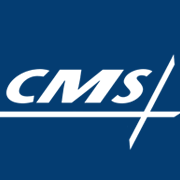CMS Awards Equipment Contracts to Reduce Medicare Spending
CMS released contract offers and single payment amounts for Medicare’s Round 2 Recompete to show success of Medicare spending reductions with its competitive bidding program.

- CMS continues to reduce Medicare spending by awarding contracts to successful bidders for Medicare’s Round 2 and national mail-order recompetes and releasing new single payment amounts for the Durable Medical Equipment, Prosthetics, Orthotics, and Supplies (DMEPOS) Competitive Bidding Program, according to a recent announcement.

CMS will offer 12,181 contracts to 637 Round 2 Recompete bidders. Ninety-three percent of these contracts were awarded to bidders who already provide DMEPOS supplies and equipment through the program. The federal agency will offer 9 contracts for the national-mail order program. The bidders were not revealed, but CMS expects to announce the suppliers in spring of 2016.
CMS states that 56 percent of Round 2 Recompete successful bidders are small suppliers, who gross $3.5 million or less in revenue. Twenty-two percent of successful bidders for the national-mail program are small suppliers.
The new payment amounts go into effect on July 1, 2016 and will last until December 31, 2016. Round 2 and national-mail order program contracts will expire on June 30, 2016.
The DMEPOS Competitive Bidding Program allows suppliers to compete for Medicare supplier contracts. The suppliers can submit bids to provide medical equipment to competitive bidding areas (CBAs) on selected items. All bids are reviewed for the supplier’s eligibility to participate in Medicare programs, financial stability of bid, and bid price. Contracts are awarded to those who offer the best price and quality.
Medicare replaced the fee schedule amount with a single payment amount method. The amount is calculated from the median of all winning bids.
The Competitive Bidding Program for DMEPOS was created to alleviate cost burdens on taxpayers and Medicare beneficiaries. The program reduces Medicare spending by placing appropriate prices on medical equipment and supplies.
Previously, Medicare paid for DMEPOS items, such as oxygen tanks, walkers, hospital beds, and wheelchairs, through a fee schedule. Prices were based on outdated supplier charges from the 1980s, which were occasionally adjusted for inflation. The fee schedule for most items did not reflect current market prices. In some cases, the prices for DMEPOS supplies were three or four times higher than current retail prices.
CMS reports that the first two years of Round 2 and national-mail order programs have saved Medicare an estimated $3.6 billion. Medicare expects to save approximately $25.7 billion between 2013 and 2022 while Medicare beneficiaries save $17.1 billion in the same period.
The program is divided into several rounds of bidding. It is separated by product categories and CBAs.
The Round 2 Recompete product categories were enteral supplies general home equipment, nebulizers and supplies, negative pressure wound therapy and supplies, respiratory equipment supplies and accessories, standard mobility equipment and accessories, and transcutaneous electrical nerve stimulation devices and supplies. The national mail order program was for diabetic testing supplies.
CMS states that the program has been successful in reducing Medicare spending and providing more access to products from high quality suppliers. There has been is no negative impact on the health status of beneficiaries based on hospitalizations, length of hospital stays, and number of emergency room visits compared to non-CBAs, reports CMS.
The success is attributed to CMS’ dedication to providing channels of open communication and information sharing. Each CBA is supplied with several local CMS representatives, who can respond to complaints and inquiries from beneficiaries, suppliers, and other stakeholders. CMS also launched a formal complaint process to report major concerns about suppliers and implementation issues. To keep the program more transparent, CMS requires suppliers to submit reports on brands provided in each CBAs.
Round 1 2017 bids are currently being evaluated by CMS and are scheduled to be implemented starting on January 1, 2017.
